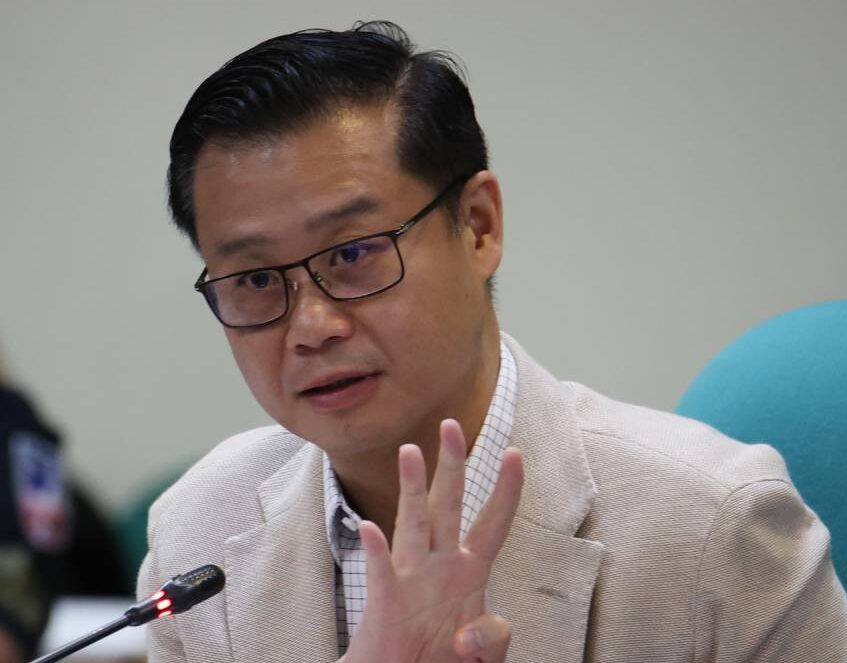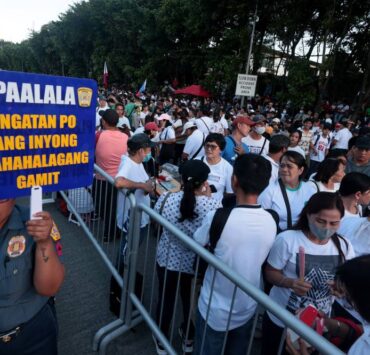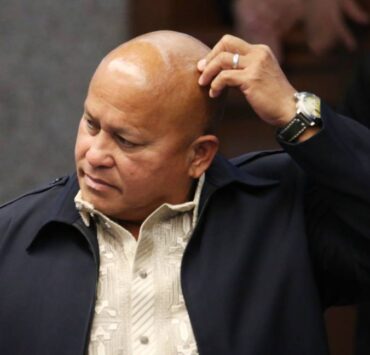Widening Graft probe pushes PH to ‘high political risk’ status

Simmering public anger and swelling street protests over a widening corruption investigation have pushed the Philippines into the ranks of countries deemed at “high risk” of political instability, underscoring how the government’s sweeping graft crackdown is straining its institutions and stirring anxieties.
The country scored 71.65 out of 100 in the Economic Crime and Geopolitics Index (ECGI), a measure that assesses corruption levels, the severity of economic crime, public response, and geopolitical pressures to gauge how these forces shape political stability.
This score was higher than the 69.2 given last September, officially shifting the country from “medium” to high-risk status.
The Philippines now joins a troubling cluster of high-risk countries, namely Pakistan, Indonesia, Sri Lanka, Bangladesh, Nepal, Myanmar, India, Afghanistan, and Cambodia.
These nations, according to the index, face a “complex environment where corruption, institutional weaknesses, civic activism and external pressures mutually reinforce one another.”
As demonstrations continue to grow in scale and frequency, ECGI warned that the country’s governance environment “faces a crucial inflection point.”
Out of nations classified as high risk, ECGI’s inaugural report last September noted that three–Sri Lanka, Bangladesh, and Nepal–have already undergone the full cycle from uprising to new regime.
“The remaining six face significant instability—ranging from civil war in Myanmar, to continuous protests in Indonesia and India, to the tightening autocratic grip in Cambodia, Pakistan’s recurring cycles of political collapse, and Afghanistan’s enduring governance vacuum under the Taliban,” it added.
Frustration, declining trust
One of the most significant drivers behind the Philippines’ higher score is the public response factor, which has climbed notably due to widespread protests and heightened civic activism, the report noted.
“Large-scale demonstrations led by grassroots movements and non-governmental organizations have gained momentum, underscoring society’s frustration and declining trust in public institutions,” it warned.
The latest was the protest against corruption launched by the religious sect Iglesia ni Cristo on Sunday and Monday in Manila that drew an estimated 650,000 people.
ECGI said the Philippine government has initiated certain corrective steps, including the establishment of a non-partisan fact-finding body in the Independent Commission on Infrastructure.
Even so, it noted how such measures had not been sufficient to restore public confidence or stem protest activity.
“With the Philippines now entering the high-risk category, the increase in civic mobilization highlights a population unwilling to tolerate longstanding systemic failures,” the ECGI assessment noted. “Unless structural reforms are accelerated and political will is reinforced, public unrest is expected to intensify.”
The new index was developed by Asanga Abeyagoonasekera, a Sri Lankan foreign policy analyst and senior fellow at the Millennium Project in Washington, D.C., to serve as a “forward-looking early-warning mechanism” for governments, investors, and security analysts.
Bad for economy
In Congress, Sen. Sherwin Gatchalian on Tuesday raised the alarm over the negative impact of ongoing destabilization talks on the economy, as evidenced by a weak peso, a slump in the stock market, and declining foreign direct investments (FDIs).
“Just the simple talk of destabilization is not good for us. Now we see that peso is weak against the dollar, the stock market is declining… who will invest in us if the situation is like that?” asked Gatchalian, chair of the Senate finance committee.
He stressed that the negative sentiment does not only affect investor confidence; it also dampens domestic consumption.
“A big part of the economy is household consumption, almost 60 to 70 percent. If public sentiment is not good, it affects spending or purchasing,” he explained.
Gatchalian said slower government spending amid controversies involving public works projects has also adversely affected economic expansion, resulting in a disappointing 4-percent growth in the third quarter of the year.
Aside from the weak currency and sluggish equities market, FDIs declined by 40.5 percent to $494 million in August, the senator said.
Last week, Armed Forces of the Philippines (AFP) chief Gen. Romeo Brawner Jr. said the military’s intelligence community is reviewing names flagged in a list circulating online that supposedly identified government and retired military officials tied to a destabilization plot.
Welcome revamp
The flood-control mess has already led to another shake-up in President Marcos’ official family, which the Federation of Philippine Industries (FPI), the umbrella organization representing the country’s leading producers and manufacturers, has welcomed as a key to restoring confidence and stability in government.
“These transitions come at a crucial time for policy coherence, fiscal stability, and investor confidence. FPI affirms its support for continuity and coordination across government agencies to sustain economic momentum,” FPI chair Elizabeth Lee said in a message on Tuesday.
On Monday, Secretary Frederick Go, the special assistant to the President for investment and economic affairs, was appointed finance secretary, replacing Ralph Recto, who moved to the Office of the Executive Secretary.
The revamp followed the resignations of Executive Secretary Lucas Bersamin and Budget Secretary Amenah Pangandaman, who both stepped down “out of delicadeza” after being linked to irregularities in flood control projects.
Presidential Legislative Liaison Office Undersecretary Adrian Carlos Bersamin also resigned on Monday.
Budget Undersecretary Rolando Toledo stepped in for Pangandaman as officer in charge.
Economist and former Albay 2nd District Rep. Joey Sarte Salceda said the appointments reflect a balance of political acumen and practical economic experience aimed at strengthening the administration’s economic management, an analyst said. —WITH REPORTS FROM TINA G. SANTOS AND LOGAN KAL-EL M. ZAPANTA AND NYAH GENELLE C. DE LEON

















